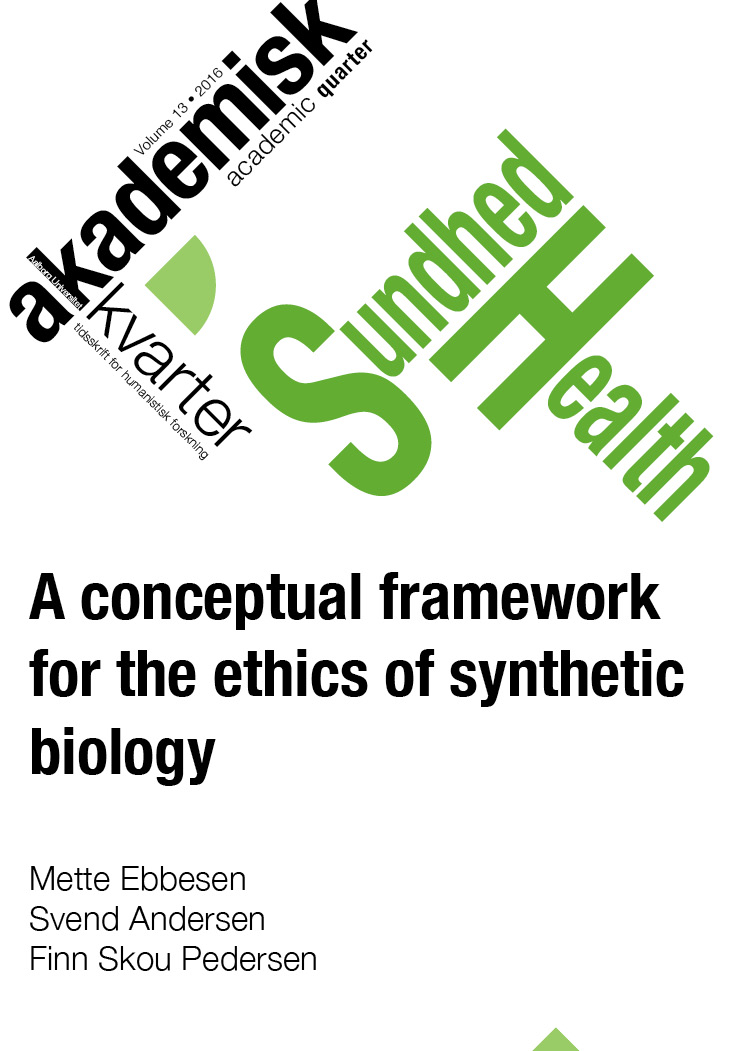Abstract | Abstract
Synthetic biology is an emerging and promising interdisciplinary field of research. Synthetic biology deals with the design of new biological units, devices to build artificial life, or the redesign of existing natural biological systems with possible applications within many diverse areas such as energy, environment, food, and medicine. In this way, synthetic biology may help solve some of the challenges the world is facing in the 21st century. However, it is of
the utmost importance to consider, at an early stage, the ethics of new emerging technologies such as synthetic biology and nanoscience. In this article, we argue that analogues can be drawn between nanoscience and synthetic biology. Firstly, we show that the ethical principles of beneficence, nonmaleficence, respect for autonomy, and justice are important for nanoscience, and we reveal that these principles are part of the bioethical theory of the American ethicists, Tom L. Beauchamp and James F. Childress. Secondly, we argue that analogues can be drawn between the ethical problems of nanoscience and those of synthetic biology, and thirdly, we conclude that the theory of Beauchamp and Childress can also be used to analyze ethical issues of synthetic biology. In this article we use an oncolytic poxvirus for delivery and expression of transgenes in tumors as an example to illustrate how to use Beauchamp and Childress’ theory to analyse ethical problems of synthetic biology.
